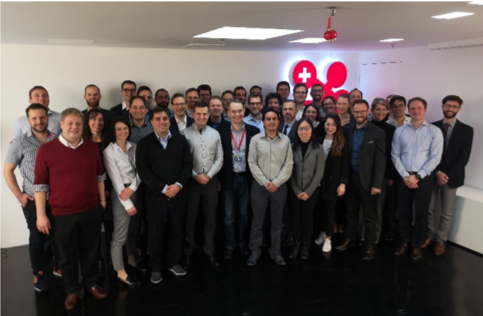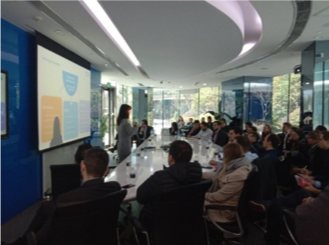Bernhard Schmid received his PhD at the Institute of Systematic Botany at University of Zurich and later worked at Harvard University (Cambridge), the University of Basel and University of Zurich. He used to be a member of the Research Council, Division III, at the Swiss National Foundation. Bernhard Schmid was several times a visiting professor at different foreign universities and is a guest professor at Peking University since 2009. He was Vice Dean and then Dean of the Faculty of Science at University of Zurich. Currently, he spends most time at the Department of Geography of the University of Zurich or with colleagues in China, working on topics of Global Change, Biodiversity and Ecosystem Science. Major recent contributions from his side concern the relationship between plant species richness and ecosystem functioning. Recently, an international research team he is part of published two papers showing that species-rich forest ecosystems are more productive and can store more carbon than less diverse ones. The new results imply that mixed-species afforestations would be twice as effective as the currently planted monocultures in combating global warming.
Recently, an international research team of which you are part of published the paper “Impacts of species richness on productivity in a large-scale subtropical forest experiment” in the journal Science; the research project that lead to this paper started over eight years ago. How was the project formed? And were you there right from the start?
Yes, I was there right from the start. I was actually the person who initiated it, but it was on the trip of a German research team to start collaborations in another field, namely Wetlands Ecology, with Chinese colleagues. That was in 2004. But then when we were there, we realized that maybe it would be much more interesting to do a project on the importance of forest biodiversity for carbon storage and erosion control. We discussed it, and out of a small idea it became a big project, which was funded by mainly the German Science Foundation and the Chinese Academy of Sciences, with additional contributions of the Swiss National Science Foundation and the European Union.
Over 60 people are listed as authors for this paper, a very impressive number! How was it to work with so many people in one project?
It was a very challenging, but also very rewarding experience. We had on the German side a so-called research group, which is a special funding instrument of the German Science Foundation. Therefore, the German colleagues, who are used to this kind of collaboration, summitted the proposal and received funding.
But in this project, the collaboration was more difficult, since we had three different sides, the German, the Chinese, and the Swiss. On the Chinese side two of my former colleagues that I brought into the project played a critical role from the very beginning. These two colleagues organized the Chinese side, especially Keping Ma, one of the other last authors of the paper in Science. He found for every German subproject a complementary Chinese team and then we always had paired subprojects; this was the way we organized the entire project. And of course we discussed the whole project quite democratically, who would do measurements of tree growth, who would do soil analysis, and so forth. This worked quite well in my point of view. Often in these large projects there is one “big” professor who leads everything. But in our case, because the Germans were from the beginning a group of professors of equal seniority, we were quite a collaborative, equally led team, among which Helge Bruelheide, another last author on the Science paper, took the role as speaker of the research unit. On the Chinese side the leadership was a little more focused on our very good senior colleague Keping Ma from the Chinese Academy of Sciences.
And since we are focusing on Sino-Swiss relationships here at swissnex China, how was it for you to work together with Chinese researchers?
For me it was a great experience to work with the Chinese colleagues, I like them very much. They are very friendly and in many ways very similar to the Swiss, also the Swiss style of communication seems to suit our Chinese counterparts well. Moreover, I found that everybody was very open and flexible.
Did you have any China experience prior to this project? Professionally or personally?
Not at all. I just had the two Chinese colleagues, one that I had met in Harvard when I was on a sabbatical and he was post-doc, and another one that I had met in the steering committee of the international DIVERSITAS program in Paris. These two people, they are my good friends. And when I had the chance to go to China in 2004, I just contacted them and asked them if they would potentially help us to do something interesting together with the German research group. Now I’m going every year two or three times to China.
How well do you speak Chinese?
I don’t speak Chinese at all because I never had the time to learn it. And that’s one thing I have planned to do now, but again I hardly get the chance, because I have talks, give courses, discuss papers and of course the Chinese colleagues are also keen to learn English.
Was that an issue for the collaboration?
No, it was not an issue. But I think it was very important to understand the cultural differences. I learned more about these differences by reading one very fascinating book that the Chinese colleagues suggested to me, which is called “The Geography of Thought“ by Richard Nisbett and then I also read some of the classical Chinese novels. This understanding was much more important for the collaboration. In some cases, it was even good to not understand Chinese, because in this way the Chinese side could discuss things without fearing that I would understand what they were saying. Sometimes they wanted to talk about things they didn’t want us to hear.
What do you think was the most exciting or rewarding part of this project for the team?
For the team it was great that having such a collaboration allowed us to do a large experiment – it is maybe the largest ecological experiment in the world! Of course, this requires a team as big as ours. Moreover, we complemented each other very well, for example, I am the one who knows well how to design experiments, the Chinese are very good in the logistics, and the Germans are very precise. All this also led to synergistic effects. Also, it was really amazing that from almost nothing we were able to develop such a big project.
And for you personally?
I think meeting many new Chinese colleagues was a really rewarding part of this project. Before I had the two, and now I have many. Then, of course, the cultural experience, seeing the country, going to many places, also going to the field, to rural places... – so yes, these were really the most exciting parts for me: Making friends and the great cultural experience.
What would you say were the biggest challenges for the team?
For the team it was for example difficult to organize joint evaluations. The German side and the Chinese side always wanted to have evaluations that would be joined by the German Science Foundation and by the National Science Foundation of China. That didn’t work that well. And sometimes the Chinese were a little bit frustrated that they had to help us to pass the German evaluation for example.
But I think the most challenging part was assigning credit to all involved. Many of the papers, which were produced so far in this project, had European first authors and European last authors. That was an issue that is now improving. The German Science Foundation always wanted to us to eventually hand over the management of the so-called BEF-China platform, including experimental and natural forest stands at the study site, to the Chinese side, which was quite challenging. I had to push quite hard for it because my German colleagues were a bit concerned because they had invested so much into the platform, but the German Science Foundation really wanted us to make the transfer. Now it has been confirmed that it is the Chinese who manage it and thus take ownership. That of course comes with responsibility. The Chinese peers are so busy with so many things that they sometimes don’t have enough time to take care of the platform. That was a little bit an issue, but since now the Chinese side must take care of it, which means they get credit for it, they are also very keen to keep it up.
And for you?
It was a little bit of my task to facilitate the German-Chinese collaboration. The Germans are sometimes a little too direct and on occasions had insufficient understanding or patience in my point of view for the more indirect approaches on the Chinese side. For example, the Germans would ask the Chinese for something and the Chinese had some excuses to provide it later on. For me it was clear that they could not, but the Germans may have insisted. Then, I or my wife, when she was accompaning us, were trying to bridge the cultural divide. Of course, you cannot generalize that, but it was sometimes an issue. And I usually tried to help the Chinese side a little more to get their part.
Did you find any further collaboration opportunities in relation to China through this project (e.g. interesting contacts or other fields)?
Yes, because of that we launched some Sino-Swiss projects, sometimes in collaboration with this project, sometimes not. For example, we organized a project in the Qinghai-Tibetan Plateau, PhD summer schools, and also some European projects. I started collaborations with my old and new Chinese colleagues that go beyond this original big project.
What tips would you give to other researchers that are interested in doing research in China?
In my opinion, the only and really important thing is that you have friends to collaborate with. It does not work if the decision comes from top-down and you just go to China with a high-level delegation and try to start a collaboration.
I think, the reason why we were successful, and we could have failed several times, was because we had such good friends. The two initial colleagues, and later also some additional ones, they would have never let us down. I think that is the most important part of the collaboration with the Chinese, that you have colleagues that don’t just cut the connection. I think that many of the more official people or also the university leadership, they think it is mainly technical to start collaboration with China, but I think it’s much more important to connect on a personal level. You must have friends first, otherwise it doesn’t work.




















































































































